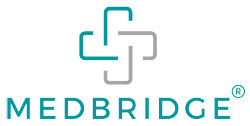We are doing our hospitation right now, from morning 8 to evening 4 and we have a language course three days a week from 5 pm to 7:30 pm. Both of us are doing practicals in Neurology but at different hospitals. Our hospitals are reachable by public transport and are really good in terms of treatment and facilities.
 The system is entirely different. Mainly with patient care. When we spend 3 to 4 minutes per patient in India during morning rounds, here the doctors spend like 10 to 15 minutes per patient during rounds. My ward has 16 patients and it takes till 6 pm in the evening for the Station doctor to take the rounds, write the discharge summary, send the blood to the lab etc.
The system is entirely different. Mainly with patient care. When we spend 3 to 4 minutes per patient in India during morning rounds, here the doctors spend like 10 to 15 minutes per patient during rounds. My ward has 16 patients and it takes till 6 pm in the evening for the Station doctor to take the rounds, write the discharge summary, send the blood to the lab etc.
Blood to be sent to the lab has to be withdrawn by the doctor itself. Some hospitals allow the guest doctors to do the procedures, and some don’t. My hospital and Sarika’s hospital are cool with that. They don’t have a problem with us drawing blood or laying cannulas of doing a lumbar puncture. We do such procedures every day.
The main thing is the language. Even a C1 level would not be enough I would say. The level in order to work at a hospital can be achieved only by staying at a hospital, hearing speaking, talking etc. The doctors speak very scrambled and fast, mashed up sometimes with latin medical terms or the equivalent German word for the disease or the body part. It was quite difficult for the first two days. But we caught up quite soon. The consultants are really surprised and satisfied by our German skills, but we are not. When we are able to speak with native fluency and write good German, then will we be satisfied. Now we can speak better and understand better. We can feel the difference in the language in two weeks. We are able to speak with the patients better, take history and examine them. But talking with real old patients. They have a very different and old accent. Its tough to speak to young people too, they’ve got this urban dialect.
But the greatest challenge that we are going to face is writing the case history on the computer and to frame a discharge summary. The native doctors here write it in near perfect German and they have their own style. That is what we find really difficult. With the permission of the assistant doctor we write the discharge summary, but almost always they have to rewrite the whole thing.
The assistant doctors, professors, and consultants are very helpful and friendly, the professional relations are very well managed and productive. All of them consider one another as a colleague. Even though there are defined hierarchies, there is nothing such as bossing around, overruling or scolding, Everyone is colleagues, starting from the ones that clean to room to the chief doctor. Everyone is respected in their own area of expertise. In India, the nurses are considered lower to doctors and we can always boss over them. That doesn’t happen in Germany. And the nurses are paid quite equivalent to doctors, and sometimes a senior nurse here earns more than a consultant.





